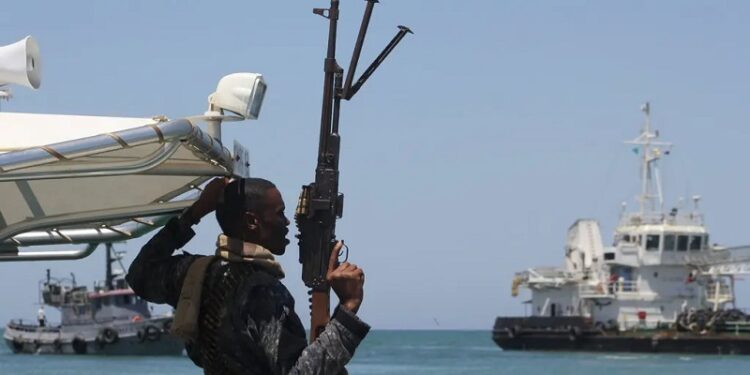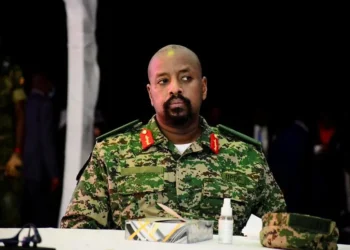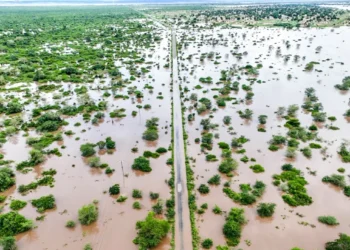By Peter Viggo Jakobsen*
In 2011, pirates carried out 212 attacks in a vast area spanning Somali waters, the Indian Ocean, the Red Sea and the Gulf of Aden, actions that the World Bank said cost the world economy US$18 billion a year.
Armed pirates hijacked ships as far away as 1,000 nautical miles from the Somali coast. They held the ships and crews for ransom. The World Bank estimates that Somali pirates received more than US$400 million in ransom payments between 2005 and 2012.
The piracy problem appeared unsolvable. Anti-piracy naval missions undertaken by the world’s most formidable navies, and self-protection measures adopted by the shipping industry, didn’t seem to work. It was, therefore, generally held that the solution lay ashore: major state-building in Somalia to remove the root causes of piracy.
The only problem was that no one was willing to undertake such a mission in the wake of America’s failures in Afghanistan and Iraq.
And then there was an astonishing turnaround. The number of attacks fell to 10 in 2012 and only two ships were hijacked between 2013 and 2023.
For three decades, I have conducted research on international diplomacy, military strategy, use of force and peacebuilding. Together with a colleague specialising in military strategy, I analysed the Somali piracy case. Academics and practitioners agree that four factors interacted to stop the pirates:
- the conduct and coordination of several anti-piracy naval operations by the world’s most capable navies, including all five permanent members of the United Nations Security Council: the United States, the United Kingdom, France, Russia and China
- the implementation of costly self-protection measures, not least the use of armed guards, by most flag states and shipping owners
- development of a comprehensive legal toolbox enabling pirate prosecution and imprisonment
- regional capacity-building making it possible to imprison pirates regionally and in Somalia.
The surprising thing is not that the four measures on their own proved sufficient to stop Somali piracy. What makes the Somali case special is the international community’s ability to agree to them and pay for their implementation.
The Somali case is important because it’s one of the few success stories in recent years where the use of limited force contributed to a sustainable outcome. Further, Somali pirates were stopped even though the conditions onshore in Somalia didn’t improve in any major way.
Collective action
Theoretically, the international community’s collective effort shouldn’t have happened because safety from piracy is a costly public good.
This means that it’s very expensive to provide but no one can be prevented from enjoying it once it has been produced. The result is a collective action problem that’s rarely overcome in international politics. Most actors prefer to free-ride rather than contribute to the production of the public good.
With respect to Somali piracy, all states and shipping owners had an incentive to leave it to others to solve the problem for them. The implementation of the four factors was very expensive for the states contributing to naval operations, and for shipowners who had to pay for self-protection measures, including hiring of armed guards.
Our study sought to understand how and why the collective action problem was overcome. The hope was to learn something that could help with overcoming similar problems in the future.
What worked
We found that three factors explain why the amount of free-riding was minimised in the Somali case.
The first was that the Somali pirates attacked ships belonging to all five permanent members of the UN Security Council and all the major shipping companies. This induced France to take the lead in military action against the pirates. The US subsequently led with respect to formulating a comprehensive strategy to implement the four factors presented earlier.
The involvement of European Union and the North Atlantic Treaty Organization (Nato) in the anti-piracy naval operations made it hard for member states not to contribute. A total of 18 member states contributed ships. China and Russia supported the American-led strategy and launched their own naval operations because their ships were attacked as well.
Second, the US established an institution, the Contact Group on Somali Piracy, tailor-made to formulate and implement a broad anti-piracy strategy. The US handpicked who would lead various working groups so that it contained all the actors – state and non-state – that were required to implement the necessary measures. These actors provided the expertise and the material resources required to implement the four factors presented earlier.
Third, the Somalia federal government and federal member states cooperated closely with anti-piracy efforts. They allowed the use of force against pirates in its national waters and on land. Somali authorities also cooperated with respect to the construction and running of pirate prisons paid for by international donors. This made it possible to overcome the piracy problem without engaging in the major state-building operation that had generally been viewed as a necessary condition for success when the piracy problem peaked in 2011.
Shared interests
Unfortunately, this success story will be hard to replicate. Somali piracy aligned great power, as well as private sector, regional and local state interests to an unusual degree. This is, for example, not the case in the Gulf of Guinea off the west African coast. Here, local states are less cooperative with respect to tackling piracy than Somali governmental actors were.
It’s also not the case with respect to tackling the coups in west Africa, where Russia, the three western members of the UN Security Council and regional states have conflicting interests.
It was the high degree of shared interests among the many actors involved that made the Somali anti-piracy campaign so effective.
ـــــــــــــــــــــــــــ
*Associate professor, Royal Danish Defence College



























































